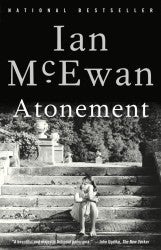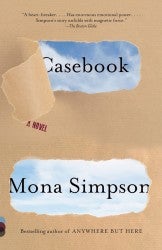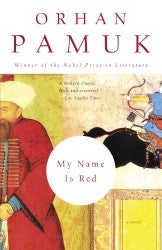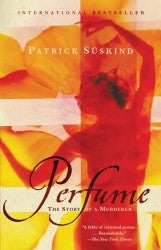Unreliable Narrators That Will Make You Question Everything
We all know people who fib when they tell a story, so it’s no surprise when a character isn’t 100% honest. But what do you do when the narrator of a book, the character who determines how you as a reader understand the story, might not be telling the truth? And what is “truth” in a novel anyway? Identifying an unreliable narrator in a novel always adds a fascinating new level to your reading experience and provides an excellent discussion topic for your book club. To help you choose a book club selection with this unique characteristic, we’ve compiled a list of some of our favorites here.
First Person by Richard Flanagan
“A profound and thought-provoking novel that explores the nature of truth, lies, and fiction.” —The Bookseller
Kif Kehlmann, a young, penniless writer, thinks he’s finally caught a break when he’s offered $10,000 to ghostwrite the memoir of Siegfried “Ziggy” Heidl, the notorious con man and corporate criminal. Ziggy is about to go to trial for defrauding banks for $700 million; they have six weeks to write the book.
But Ziggy swiftly proves almost impossible to work with: evasive, contradictory, and easily distracted by his still-running “business concerns”—which Kif worries may involve hiring hitmen from their shared office. Worse, Kif finds himself being pulled into an odd, hypnotic, and ever-closer orbit of all things Ziggy. As the deadline draws near, Kif becomes increasingly unsure if he is ghostwriting a memoir, or if Ziggy is rewriting him—his life, his future, and the very nature of the truth.
By turns comic, compelling, and finally chilling, First Person is a haunting look at an age where fact is indistinguishable from fiction, and freedom is traded for a false idea of progress.
Read an excerpt | Get the reader’s guide | Buy the book
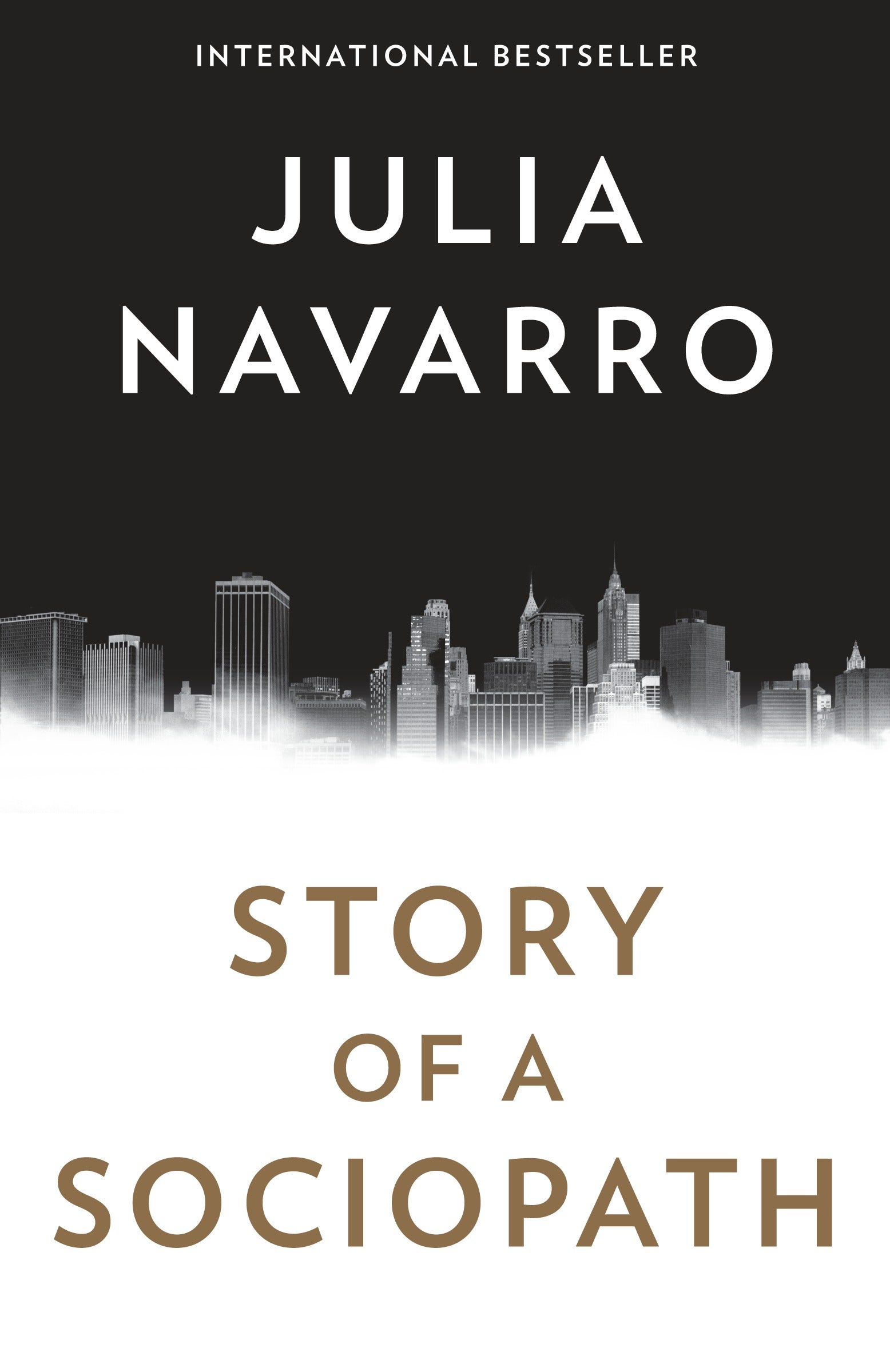 Story of a Sociopath by Julia Navarro
Story of a Sociopath by Julia Navarro
“Dissects the ambition, greed, and selfishness of human beings.” —El Correo (Bilbao)
Raised in the upper echelons of elite New York society, Thomas Spencer has never wanted for much. But much is hardly enough for a man whose greatest satisfaction lies in shattering the happiness of others. Thomas, the black sheep of his family, harbors only resentment toward those closest to him for what they have more of: good looks, good cheer, good social graces. But what Thomas may lack in charm, he makes up for in cunning. And it is this that will serve him best when he trades in his glittering world of privilege for a chance to claw his way to the top—on his own terms, and at any cost. As Thomas achieves fame and success as an ad man, he becomes ever more deeply entrenched in an insidious underworld of media, politics, and women, and an astonishing picture emerges of a complex, destructive personality who will stop at nothing to get what he wants.
Thomas Spencer is a self-identified “scum,” so readers have every reason to doubt his word.
Read an excerpt | Buy the book
“The only convincing love story of our century.” —Vanity Fair
Awe and exhilaration—along with heartbreak and mordant wit—abound in Lolita, Nabokov’s most famous and controversial novel, which tells the story of the aging Humbert Humbert’s obsessive, devouring, and doomed passion for the nymphet Dolores Haze. Lolita is also the story of a hypercivilized European colliding with the cheerful barbarism of postwar America. Most of all, it is a meditation on love—love as outrage and hallucination, madness and transformation.
Some say Humbert Humbert is brutally honest, but we suspect he’s playing for a little sympathy.
Read an excerpt | Get the reader’s guide | Buy the book
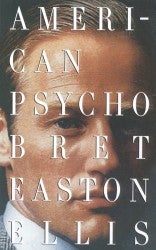 American Psycho by Bret Easton Ellis
American Psycho by Bret Easton Ellis
“A masterful satire and a ferocious, hilarious, ambitious, inspiring piece of writing, which has large elements of Jane Austen at her vitriolic best.” —Katherine Dunn
In American Psycho, Bret Easton Ellis imaginatively explores the incomprehensible depths of madness and captures the insanity of violence in our time or any other. Patrick Bateman moves among the young and trendy in 1980s Manhattan. Young, handsome, and well educated, Bateman earns his fortune on Wall Street by day while spending his nights in ways we cannot begin to fathom. Expressing his true self through torture and murder, Bateman prefigures an apocalyptic horror that no society could bear to confront.
Another book, another self-centered, deluded, psychopathic narrator. Readers be warned!
“A beautiful and majestic fictional panorama.” —John Updike, The New Yorker
On a hot summer day in 1935, thirteen-year-old Briony Tallis witnesses a moment’s flirtation between her older sister, Cecilia, and Robbie Turner, the son of a servant and Cecilia’s childhood friend. But Briony’s incomplete grasp of adult motives—together with her precocious literary gifts—brings about a crime that will change all their lives. As it follows that crime’s repercussions through the chaos and carnage of World War II and into the close of the twentieth century, Atonement engages the reader on every conceivable level, with an ease and authority that mark it as a genuine masterpiece.
Briony can be forgiven for her initial mistake because of her youth, but it’s her lifelong narcissism that truly destroys her reliability.
Read an excerpt | Get the reader’s guide | Buy the book
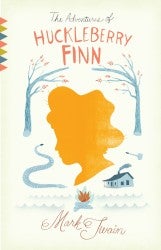 The Adventures of Huckleberry Finn by Mark Twain
The Adventures of Huckleberry Finn by Mark Twain
“All modern American literature comes from one book by Mark Twain called Huckleberry Finn. . . . There was nothing before. There has been nothing as good since.” —Ernest Hemingway
Long cherished by readers of all ages, The Adventures of Huckleberry Finn is both a hilarious account of an incorrigible truant and a powerful parable of innocence in conflict with the fallen adult world. The mighty Mississippi River of the antebellum South gives the novel both its colorful backdrop and its narrative shape, as the runaways Huck and Jim—a young rebel against civilization allied with an escaped slave—drift down its length on a flimsy raft. Their journey, at times rollickingly funny but always deadly serious in its potential consequences, takes them ever deeper into the slave-holding South, and our appreciation of their shared humanity grows as we watch them travel physically farther from yet morally closer to the freedom they both passionately seek.
Huckleberry Finn is young and just a little naïve, the makings of a perfectly unreliable narrator.
Read an excerpt | Get the reader’s guide | Buy the book
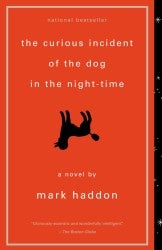 The Curious Incident of the Dog in the Night-Time by Mark Haddon
The Curious Incident of the Dog in the Night-Time by Mark Haddon
“Gloriously eccentric and wonderfully intelligent.” —The Boston Globe
Christopher John Francis Boone knows all the countries of the world and their capitals and every prime number up to 7,057. He relates well to animals but has no understanding of human emotions. He cannot stand to be touched. And he detests the color yellow. This improbable story of Christopher’s quest to investigate the suspicious death of a neighborhood dog makes for one of the most captivating, unusual, and widely heralded novels in recent years.
Christopher’s inability to read human emotions creates a unique challenge in understanding the world as he sees it.
Read an excerpt | Get the reader’s guide | Buy the book
“Simpson’s beautifully crafted novel shows us a reconfigured California family through the eyes of a smart, funny adolescent longing to keep hope alive.” —People
Nine-year-old Miles Adler-Hart’s mother, “the Mims,” is “pretty for a mathematician.” Miles and his best friend Hector are in thrall to her. When her marriage starts to unravel, the boys begin spying on her to find out why. They rifle through her dresser drawers, bug her telephone lines, and strip-mine her computer. Ultimately, what they find will affect the family’s prosperity—and sanity. Burdened with such powerful information, the boys struggle to deal with the existence of evil, and proceed to concoct hilarious modes of revenge on their villains. Casebook brilliantly reveals an American family coming apart at the seams and, simultaneously, reconstituting itself to sustain its members through their ultimate trial.
This childlike look at a collapsing marriage is as fascinating as it is heartbreaking.
Read an excerpt | Get the reader’s guide | Buy the book
 Wuthering Heights by Emily Brontë
Wuthering Heights by Emily Brontë
“It is as if Emily Brontë could tear up all that we know human beings by, and fill these unrecognizable transparencies with such a gust of life that they transcend reality.” —Virginia Woolf
Published in 1847, the year before Emily Bronte’s death at the age of thirty, Wuthering Heights has proved to be one of the nineteenth century’s most popular yet disturbing masterpieces. The windswept moors are the unforgettable setting of this tale of the love between the foundling Heathcliff and his wealthy benefactor’s daughter, Catherine. Through Catherine’s betrayal of Heathcliff and his bitter vengeance, their mythic passion haunts the next generation even after their deaths. Incorporating elements of many genres—from gothic novels and ghost stories to poetic allegory—and transcending them all, Wuthering Heights is a mystifying and powerful tour de force.
It’s easy to forget that it’s Nelly, an occasionally gossip-prone servant, and Lockwood, who only knows the story through Nelly, who narrate this Gothic classic.
Read an excerpt | Get the reader’s guide | Buy the book
“Playful, intellectually challenging, with an engaging love story and a full canvas of memorable characters, My Name is Red is a novel many, many people will enjoy.” —David Walton, Milwaukee Journal Sentinel
The Sultan has commissioned a cadre of the most acclaimed artists in the land to create a great book celebrating the glories of his realm. Their task: to illuminate the work in the European style. But because figurative art can be deemed an affront to Islam, this commission is a dangerous proposition indeed. The ruling elite therefore mustn’t know the full scope or nature of the project, and panic erupts when one of the chosen miniaturists disappears. The only clue to the mystery (or crime?) lies in the half-finished illuminations themselves. Part fantasy and part philosophical puzzle, My Name is Red is a kaleidoscopic journey to the intersection of art, religion, love, sex and power.
There are layers and layers of storytelling in this book; it is very easy for a reader to confuse the truth from the fiction.
Read an excerpt | Get the reader’s guide | Buy the book
“A fable of criminal genius. . . . Remarkable.” —The New York Times
In the slums of eighteenth-century France, the infant Jean-Baptiste Grenouille is born with one sublime gift—an absolute sense of smell. As a boy, he lives to decipher the odors of Paris, and apprentices himself to a prominent perfumer who teaches him the ancient art of mixing precious oils and herbs. But Grenouille’s genius is such that he is not satisfied to stop there, and he becomes obsessed with capturing the smells of objects such as brass doorknobs and fresh-cut wood. Then one day he catches a hint of a scent that will drive him on an ever-more-terrifying quest to create the “ultimate perfume”—the scent of a beautiful young virgin. Told with dazzling narrative brilliance, Perfume is a hauntingly powerful tale of murder and sensual depravity.
Much like Lolita and American Psycho, this look at a madman takes a little too much care on convincing the reader that Jean-Baptiste’s actions aren’t totally despicable.

